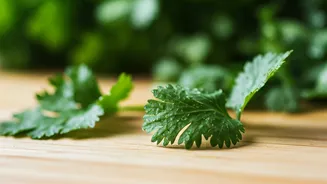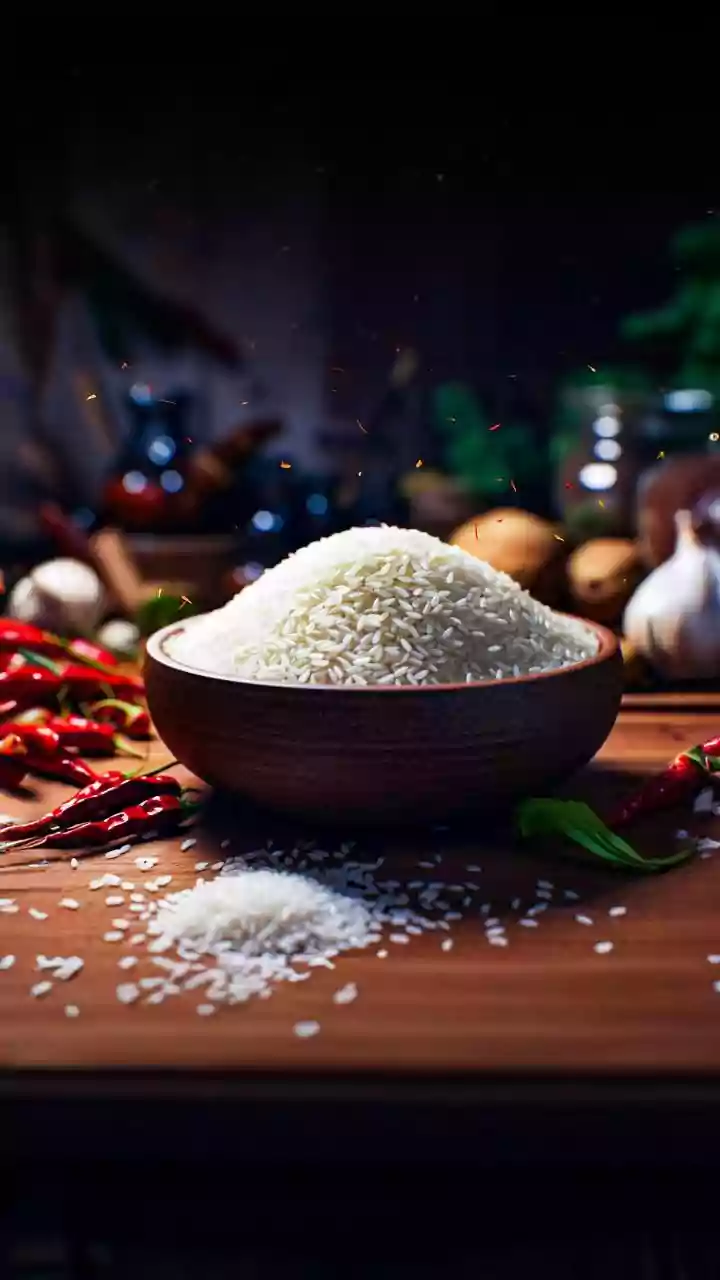Why Coriander Spoils Fast?
Coriander, a kitchen staple in India, often succumbs to premature spoilage, turning black and losing its vibrancy, which is a common problem. From vibrant
restaurant garnishes to homemade chutneys, coriander’s fresh flavor is indispensable. However, its tendency to spoil rapidly can be frustrating. This guide focuses on simple methods to ensure that your coriander stays fresh and flavorful for longer. These methods involve strategies to combat the factors that contribute to coriander's degradation, such as moisture and exposure to air. The aim is to make coriander last longer in your kitchen, ensuring you always have it on hand to enhance your meals and reduce food waste.
Initial Preparation Steps
The initial handling of coriander significantly impacts its longevity. Immediately after bringing a bunch home, trim the leaves with scissors. Next, thoroughly clean the leaves and promptly wrap them in a clean cloth. This simple step helps maintain the herb’s freshness for several days. Another method involves adding a small quantity of vinegar to the water in which the coriander is stored. Vinegar acts as a natural preservative, further extending the freshness. These preliminary actions lay the groundwork for effective storage, ensuring that the coriander remains in optimal condition from the start. Proper preparation is essential for maximizing the lifespan of your coriander and preserving its flavor.
Effective Storage Techniques
To significantly extend the shelf life of coriander, several effective storage techniques can be employed. After washing and drying the coriander, trim the roots. Then, consider briefly soaking the leaves. Following this step, chop the leaves into small pieces and store them in an airtight container. This method preserves the freshness and flavor of the coriander for an extended period. For longer-term storage, freezing is an excellent option. Wrap the coriander in a cloth before placing it in the freezer. Alternatively, place the coriander in a plastic bag before freezing. This prevents the coriander from spoiling quickly and maintains its vibrant flavor. These methods provide flexibility based on your available resources.
Paper and Freezer Options
If you lack freezer access, paper can serve as an excellent storage alternative. Thoroughly dry the coriander and wrap it in paper. Store it in a dry container to absorb excess moisture. This helps the coriander leaves stay fresh for a prolonged period. The paper acts as a moisture absorber, keeping the leaves in good condition. The freezer offers another effective storage strategy. Wrapping coriander in a cloth or placing it in a plastic bag before freezing helps maintain its freshness. Using these methods, you can prevent spoilage. This helps retain the vibrant flavor and allows you to enjoy fresh coriander for longer. These techniques are especially helpful to reduce the frequency of market runs.



















